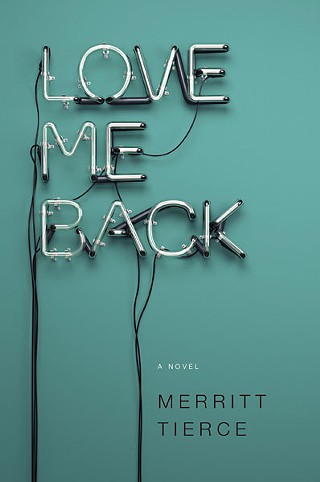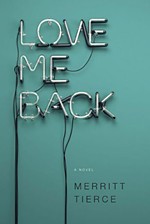Book Review: Love Me Back
Merritt's Tierce's novel isn't for the faint of heart, but it tells of a young woman's survival with boldness and power
Reviewed by Jessi Cape, Fri., Oct. 24, 2014
Love Me Back
by Merritt TierceDoubleday, 224pp., $23.95
A gifted storyteller prevents the wholeness of a human from shrinking behind the shadows of one detail, one event, one fulcrum. In her debut novel, Dallas author Merritt Tierce writes a story that somehow retains an orchestral sound – no one note ringing too loud or too long – in the chaos of a young woman's teetering life.
Marie, the narrator, enters the restaurant world and becomes a mother and wife at 17. "I don't hear my whole life being written for me inside my body, cell by cell." Her nights are split between a struggle toward impeccable professionalism to pay rent, nursing an infant, and sorting inner demons. Many characters, mostly male, play roles, but none are vilified. This is not their story. Tierce employs thematic elements of the blurred lines, the perils and perks, of service industry life: drugs, booze, sex, connections, adrenaline. People. Societal issues of inequity dance briefly with tertiary characters. But it's the parallels that so deeply resonate: motherhood and hospitality, specifically. It's the intense beauty of love's many shapes and the soul-drowning monotony of taking orders. To her sleeping daughter, who lives with the father, Marie whispers, "You are so warm but I can't stop shivering. I feel a soaring bliss – I adore you – I feel a plummeting ugly resentment – I am a pile of shit falling endlessly down a dark shaft ... You are here with your mother who is crying, so you cry too."
This work of literary fiction is formatted with parts, chapters, and section breaks that seem fragmented until the fragmentation itself becomes part of the story. Tierce chooses every word and punctuation with a sniper's precision; she never avoids the necessary brutality, eroticism, or excruciating pain, but allows tender moments and humor, too. Perhaps most boldly, Tierce allows a young adult to question her own maternal instinct – a revolutionary concept in a world spinning in stentorian opinions about how a woman should be.
Love Me Back is not for the faint of heart. But easy, complacent, and saccharine do not make great literature or art. Tierce reminds us that charmed lives can have dark undercurrents, and shredded selves – like Marie – can learn to be their own lights. Whether the reader relates to Marie, though, has no bearing on the power of these words. Here is one woman's anthem about the universal struggle to figure out how the hell you're supposed to survive yourself.















